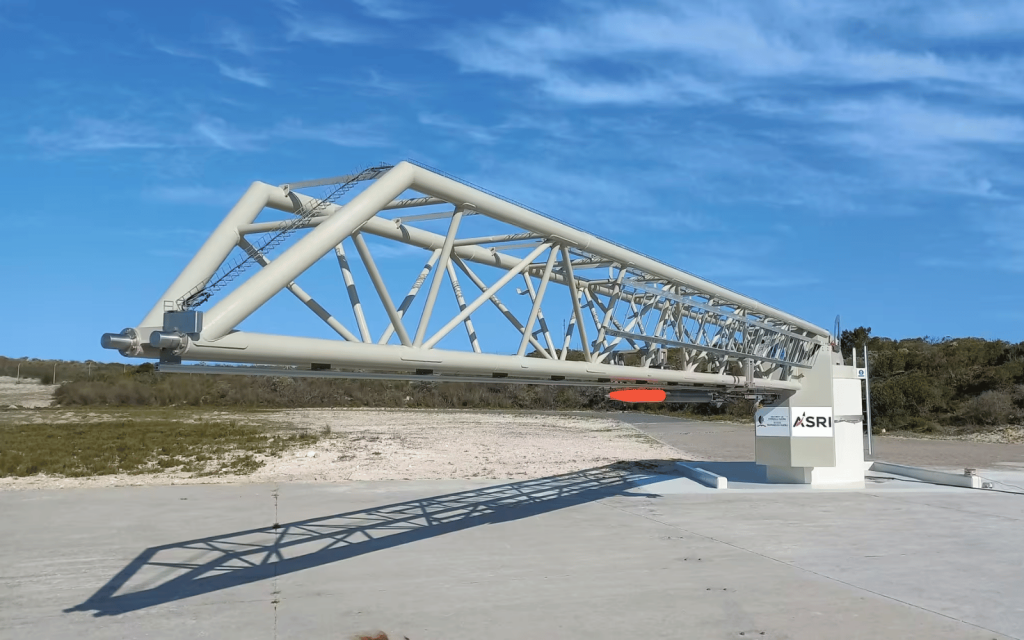South Africa’s contributions to space travel will move beyond satellite launches and ground support if the ASRI has anything to say about it. The Aerospace Systems Research Institute, a division of the University of KwaZulu Natal, has been working on rocket technology for some time.
The Institute has just gained an upgrade in the form of a new launch facility at the Denel Overberg Test Range, consisting chiefly of an advanced launch gantry for sounding rockets. Sounding rockets are sub-orbital vehicles used to conduct experiments and are a precursor to fully orbital launch platforms.
Ask the ASRI
The launch facility will be used to launch the ASRI’s Phoenix hybrid-fuel rockets. These are semi-private vehicles used to conduct experiments at heights more than 80km above the Earth. Earlier generations of the rocket were tested at the university’s older launch facility, also at Denel Overberg.
The new gantry system can also accommodate “much larger solid-propellant vehicles of the type operated by NASA – National Aeronautics and Space Administration’s Sounding Rocket Program and the European Space Agency”. It can be aimed at up to 90° vertically and has a full 360° rotation horizontally, meaning speedier changes to accommodate launch conditions. That sort of flexibility isn’t possible with something like Starship.
The ASRI has previously launched its Phoenix 1D demonstration rocket, Phoenix 1C launched in 2023, and it has attained a maximum height of 17.9km with one of its Phoenix 1B Mk II rockets. Not bad work but the group has even bigger plans ahead — SAFFIRE or the South African First Integrated Rocket Engine, a liquid fuel rocket intended to (eventually) send CubeSats into low-Earth orbit.




